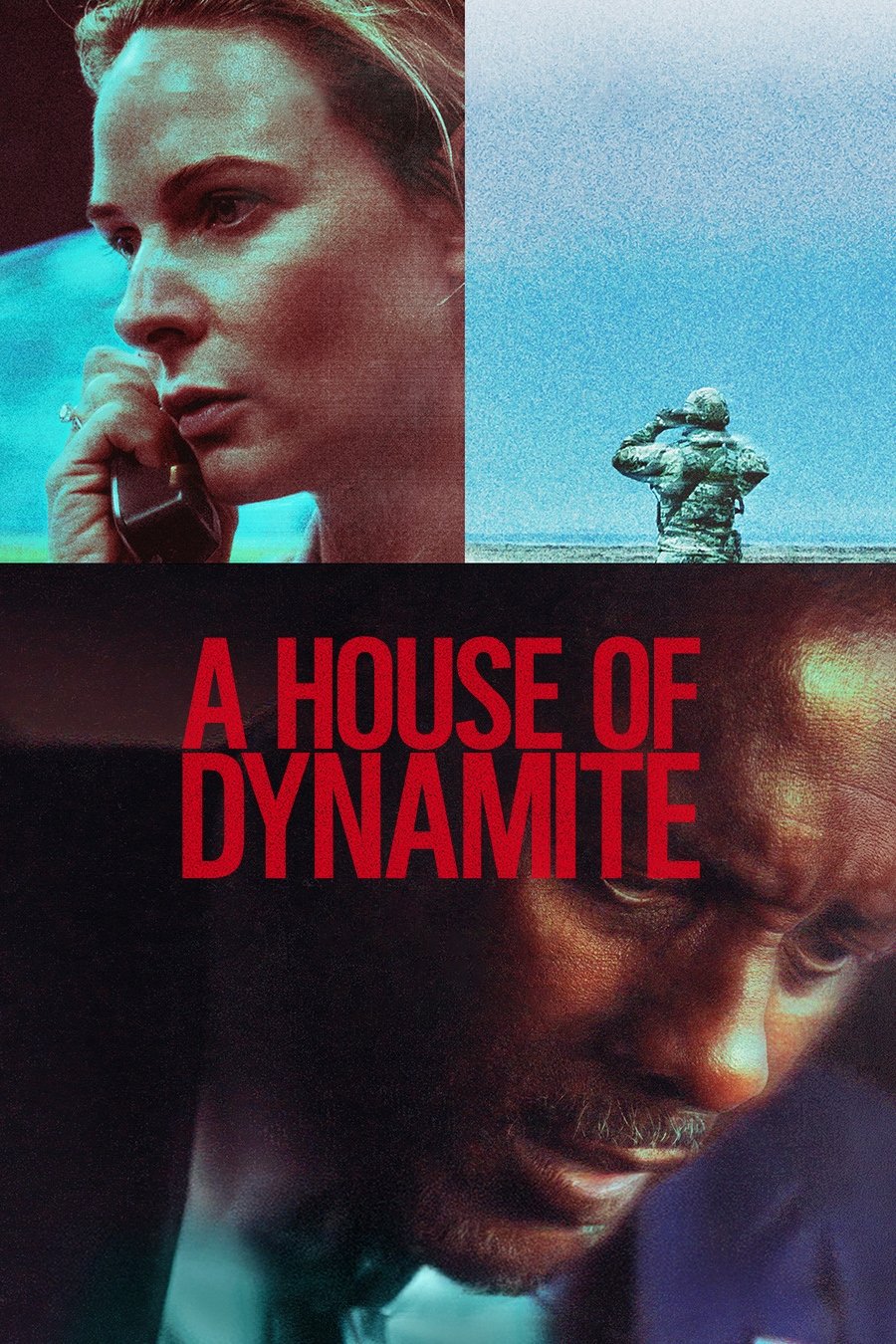To paraphrase that old Greco-Roman epigram, blessed is the film that knows how to quit while it’s ahead. For the first forty minutes or so, Kathryn Bigelow’s A House of Dynamite turns the otherwise stultifying business of Situation Room protocol and nuclear hair-trigger bureaucracy into a kind of collective nervous breakdown, cross-bred with a heist film’s mounting tension. It’s the closest she’s come to her Zero Dark Thirty high, a surgical re-immersion in the world of men and women doing “the job”, capital letters implied, even if that job looks, from without, like holding conference calls and watching red blips crawl toward American soil.
I wish I could have stayed within Bigelow’s adrenalized cocoon, where Rebecca Ferguson scans radar and cue cards, where Idris Elba’s President, his name draped with more gravitas than the script can ultimately bear, hauls American democracy to its feet using little more than worry lines and a worn-out bomber jacket, and where anxiety, not gunfire, is the live wire under every line of dialogue. For that miraculous, expository first act, there’s a genuine dread to watching a group of people attempt to outpace the incoming missile, and there’s a hint of what the genre once could do before it fossilized into the Tommy Lee Jones school of middle-aged grumbling and CGI jet noise.
But then, like some parlor trick performed once too often for impressed relatives, the screenplay insists on repeating its central crisis from a trifecta of perspectives, retelling, in increasingly diminishing returns, the same twenty-odd minutes of nuclear terror, shifting the camera from White House subbasement to STRATCOM war-room to the President’s own airless bunker. In the mouths of a better class of actors, Jared Harris, Tracy Letts, a brittle Gabriel Basso, the script’s fallback on institutional cliché becomes at least moderately savory. But what began with the precision of a surgeon’s incision gives way to narrative gout: the same video call is attended, the same high-strung Secretary threatens, the same generals posture and plea.
Was this, I kept wondering, meant as a kind of thesis statement about the ouroboros of American crisis management? Or is it simply that Noah Oppenheim, never the subtlest of scribes has mistaken redundancy for depth, like a child knocking the battery out of the smoke alarm just to see if it’ll come back on? With each rewind, what felt like a ticking time bomb devolves into a CPR demonstration, repeated until the mannequin’s chest caves in.
And what, in the end, are we left with? A President whose reveal, having been teased with Hitchcockian anticipation, falls flatter than a state of the union address. Idris Elba, stalwart though he may be, stands revealed as yet another patron saint of bland leadership, a figurehead, not a human being, his decision-making pointedly unremarkable, untethered to the swamp of moral peril the actors are forced to traipse. There’s an abortive gesture toward profundity, Secretary Baker’s literal leap from the Pentagon, a daughter pinned under nuclear fate, the President’s too-late phone call to his wife, but the movie sprints past them, unable to commit either to mournfulness or catharsis.
Bigelow’s direction, which once held suspense like water cupped in the hand, can only do so much once the script has decided to lap its own tail. Visual flourishes, a bank of monitors flickering in sterile blue, the whirring detachment of missiles failing to intercept, Ferguson’s haunted pallor are mere costume jewelry against the numbing repetition of doom’s event-horizon. By the time we’re deposited in the sunlit aftermath, with characters wiping filth from their faces and no emotional reckoning to be had, I wondered, like so many Netflix viewers before me: Had I hit the wrong button on the remote, or had the film simply run out of things to say, and collapsed from exhaustion?
House of Dynamite wants to have it both ways: a procedural with the fever dream logic of nuclear war, and a character study that never risks stepping on any toes. It begins with a bang, and ends not with a whimper but with a question mark, the dullest insult of all. If you cut away the first act and mount it on your wall, you’d have a minor genre classic. What follows is less a second and third act than it is an extended conference call, the kind that makes you wish the world really would end, just to clear up the schedule.











